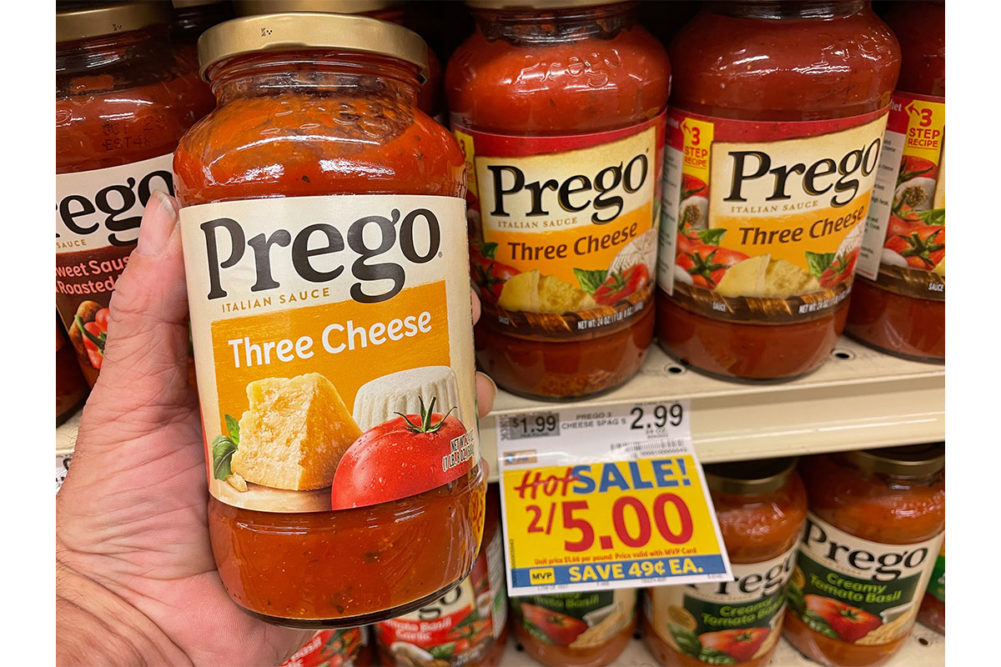CAMDEN, NJ. — Earnings gains were modest at Campbell Soup Co. in fiscal year 2023, and “transitory pressure” from shifting consumer behaviors will be a headwind early in fiscal 2024, said Mark A. Clouse, president and chief executive officer.
Setting the stage for an update on the company’s business, Clouse offered his thoughts about the current consumer landscape.
Results in the fourth quarter were affected by “transitory pressure,” particularly on the Campbell Soup Meals & Beverage segment, and effects of this pressure are expected to persist into early fiscal 2024, he said in an Aug. 31 call with financial analysts.
Describing three factors he said were responsible for the pressure, Clouse said “residual effects from the effects of COVID surges” in fiscal 2022 had an effect.
“These surges notably benefited categories like soup in the prior year, particularly during the summer, a period that historically has lower sales,” he said. “We expect this effect to continue into Q1 and greatly diminish as we approach the second quarter of fiscal 2024.”
He attributed half of the decrease in fourth quarter soup sales to this factor.
Lapping double-digit price increases a year ago also has had an impact, Clouse said, noting that the effects had been anticipated and are expected to be a headwind throughout the new fiscal year.
He said a lessening effect is expected in the second half of the year.
“We do also expect sequential volume improvement to mitigate this pricing headwind as we move into Q2 in the second half,” he said.
A third factor cited by Clouse was changing, more cautious, consumer behavior in the face of economic uncertainty and prolonged inflation.
“Consumers began prioritizing categories based on more immediate needs and value leading to fewer categories in the shopper basket,” he said. “This pattern of behavior resulted in a real focus on seasonal priorities and has obviously created a headwind on categories like soup in the summer. We expect our categories like soup, which is a top 10 category in the fall and winter, to increase in priority, and we’re already seeing some early signs of improvement.”
Another consumer dynamic Campbell Soup has identified is a shift to “value-driven stretchable meals,” Clouse said. The effects for the company have been a mixed bag.
“It has undoubtedly been a positive driver on categories like pasta sauce and condensed cooking soups, as well as broth, while also adding pressure on categories like ready-to-eat soup,” he said. “We expect this behavior to subside as inflation continues to moderate.”
In the case of the company’s Snacks division, Clouse said the category consistently holds through the year as a top consumer category (unlike soup).
“Moreover, our snack power brands have displayed remarkable resilience as consumers, even while prioritizing value, continue to sustain their purchases across our differentiated portfolio,” he said.
For the year ended July 30, Campbell Soup net income was $858 million, equal to $2.87 per share on the common stock, up 13% from $757 million, or $2.51, a year earlier. Sales were $9.36 billion, up 9% from $8.56 billion the year before.
For the fourth quarter, net income was $169 million, or 57¢ per share, up 76% from $96 million, or 32¢, a year earlier. Sales were $2.07 billion, up 4% from $1.99 billion. Adjusted for the divestiture of Emerald nuts, sales were up 5%.
For fiscal 2024, Campbell Soup said organic net sales growth will be 0% to 2%, adjusted EBIT will grow 3% to 5% and adjusted earnings per share will grow 3% to 5%. Among the assumptions underpinning the guidance, Campbell Soup said volume declines were expected in the first half of the year with “sequential improvement” each quarter leading to “positive trends” in the second half. Pricing will be less of a contributor in fiscal 2024 to sales growth, the company said.
Earnings growth and margin improvement are expected by Campbell Soup to be “second half weighted, due to an improving cost outlook throughout the year.”
The guidance incorporates a headwind of about 3¢ a share in fiscal 2024 because of lower pension and postretirement benefit income.
The sale of the Emerald nuts business is expected to reduce sales by half a percentage point and shave 1¢ a share from earnings in fiscal 2024.
Additionally, the acquisition of Sovos Brands is expected to close by the end of December 2023, and therefore, is not yet included in the fiscal 2024 outlook.



